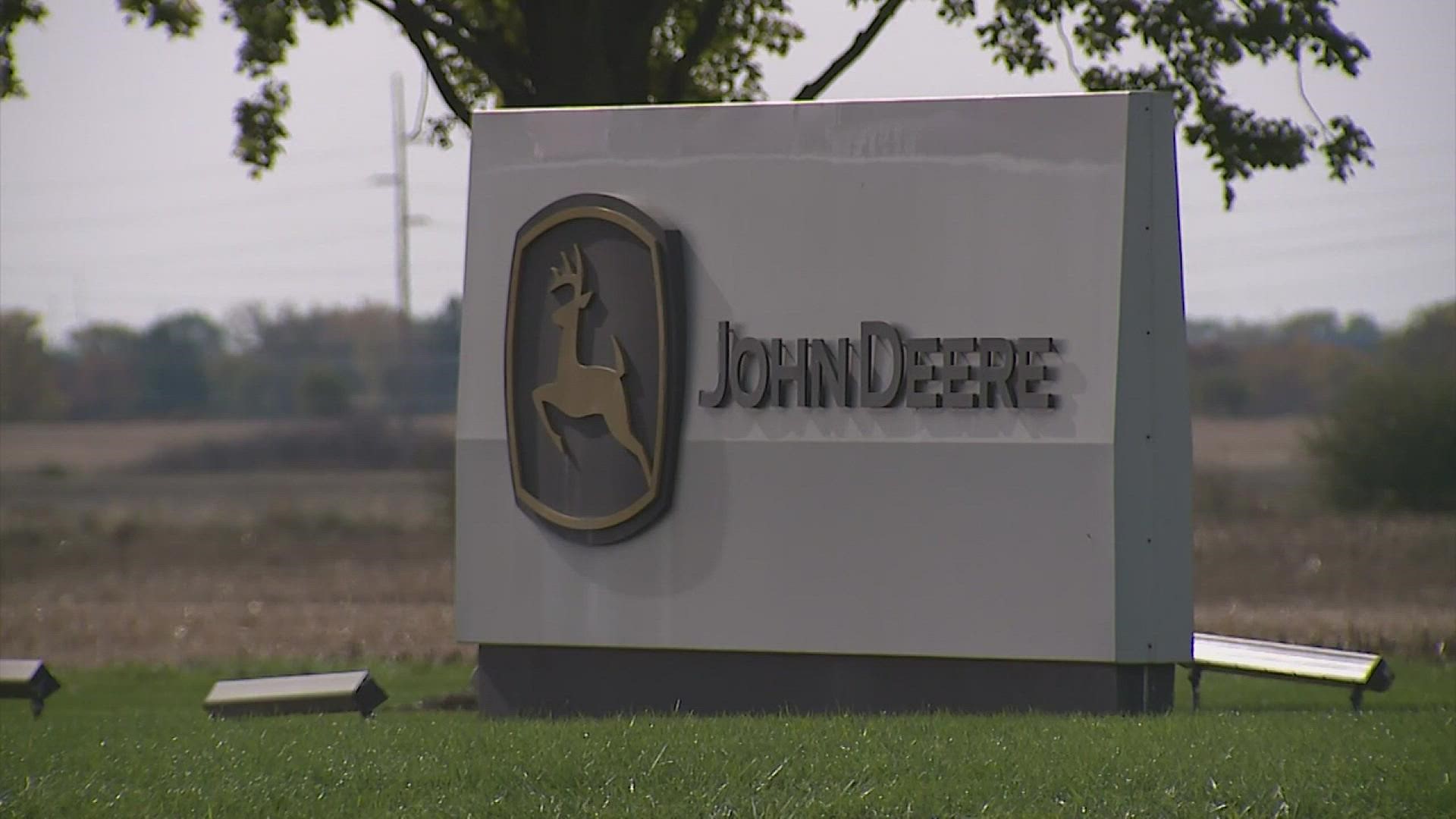MOLINE, Ill. — Fiscal year 2021 was the record breaking year that Deere & Co. had been predicting it would be. On Wednesday, Nov. 24, the company's fourth quarter earnings call reported $5.96 billion in profits.
And despite the 35-day United Auto Workers Union strike, Deere & Co. has reported a net income of almost $1.3 billion for the fourth quarter that began in August and ended Oct. 31. Its 2020 fourth quarter net income was $757 million.
Deere's fourth quarter included the first 18 days of the United Auto Workers strike, but net income was still larger in 2021 than it was in 2020.
The report comes a day after it was announced that non-union salaried staff at the company would get 8% raises. UAW union members negotiated on Nov. 17 their own immediate 10% raise, followed by a 5% raise on the third and fifth years of the contract and lump sump bonuses on the second and fourth years. The contract ended the UAW's 35-day strike that started Oct. 14.
Financial expert Mark Grywacheski says the report bodes well for the company, Wall Street, and investors.
"(Deere's) full fiscal year 2021 net income was up over 117% higher than in full year 2020," he said. "Stock is trading up about 5% to 6% up on the day based on its performance."
And the report gives more insight to one of the biggest questions coming out of the UAW strike: how would the work stoppage impact Deere's bottom dollar?
During the fourth quarter call, executives said there were many other factors that played into a slower end of the year, including a national labor shortage, record-high inflation levels, and international and domestic supply shortages.
However, the company felt confident it could quickly rebound from all of the setbacks, saying while 2022's first quarter will be Deere's toughest 'price cost comp for the year,' the rest of the year is predicted to turn around into positive trends.
And Wednesday's call also revealed how much money the newly-ratified contract will cost the company. Deere executives said the new six-year contract that includes a maximum 20% wage raise, cost of living adjustments and increased retirement benefits, would bring the company incremental costs of $250-300 million each year, before taxes, with 80% of that 'impacting operating margins.'
Those numbers did not factor in the company's 8% raise for salaried workers.
Looking ahead, Deere predicts one of the biggest success factors for 2022 will be in "precision farm equipment." On the call, it was said that some of the strongest demand is coming for newer products such as exact rate planter applied fertilizer systems.
Technologies that include GPS and computer-driven farm equipment fall into this category, with examples like self-driving tractors.
The company expects to see a 25% market growth for such products in 2022.

